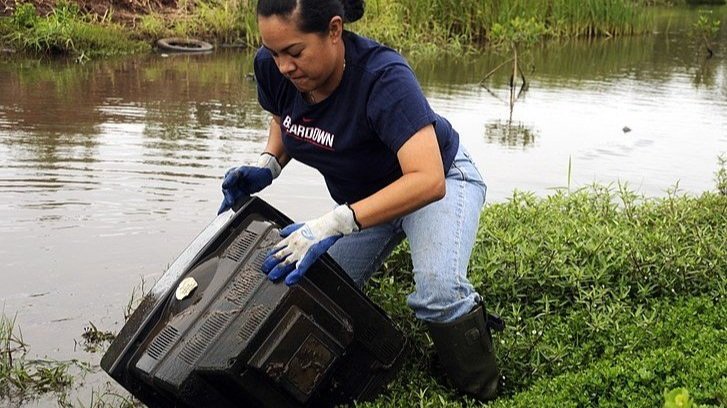Brookings pastor Carl Kline: Bridge the gap and get in tune with life — and people and animals — to live fully and happily
A video appeared on my computer screen the other day that I found most intriguing. It was a man with a guitar out in a field. He was playing for cows.
As soon as he began to play, all of the cows would come quickly to where he sat, seeming to listen intently, and eventually nosing him and the instrument. Then it was horses, with the same result. Then it was sheep. At one point he went to an animal shelter and played for all manner of creatures. They all seemed to appreciate the music and clustered around him.
Since I found this rather curious, I looked for other similar situations. There were several. One person played for a fox. Each time he would go to a certain spot and begin playing, the fox would appear. Or one would go to the zoo and find the giraffe nuzzling his neck.
What is it about music that bridges the human and animal gap? What is it about music that bridges the human gap?
This is the season of concerts. No matter our differences, all can appreciate a rousing rendition of the Hallelujah chorus or a Brahms symphony. Music has a way of smoothing over our separate lives and pulling us into a common experience.
Even the spoken word can do the same. I recall the National Storytelling Festival in Jonesborough, Tenn. Here were people gathered from all over the country to hear storytellers from all around the globe.
You would have a tent with three hundred people listening to Brother Blue (you always knew where he was from the blue balloons floating high in the sky). Or perhaps it was a more intimate setting with a Tlingit storyteller from the Pacific Northwest.
In all the situations I attended, the audience was as one, in their laughter, tears or joy. There was something about a story, with an accomplished teller, that could bring a large and diverse group of human beings into one connected family.
The natural world can accomplish the same thing. An extended family member went on a rafting trip recently with an assorted group of people from all over the country. It was a challenging experience in maneuvering through the waterways, living outside in the elements day and night.
She remarked afterwards what a bonding experience it was. This disparate group of human beings, confronted with the challenges of sharing and surviving some difficult situations, bonded. She was able to share an important bit of biography of each person in the group.
I used to watch the same thing happen working at a camp in New Hampshire. One of the major hurdles for each group of campers was an overnight experience in the White Mountains. Climbing the mountain could be difficult enough as a group, since there are always those who are in a rush and those who are slower. We would always try to find a pace that would work for everyone. And then setting up camp, preparing a meal, and actually getting rest, was difficult.
But without fail, you finished the trek with new bonds built between the campers. The challenges of the natural environment built stronger human relationships.
Life is so rich if we can get outside of ourselves! Especially in our culture, this can be hard to do. So much of our time and energy is spent on self-enhancement, there’s little time left for selflessness. The irony is, that the less concerned we are with self, the fuller our life becomes. When we lose our life in music, or story, or the natural world, or focused on others, we gain so much more.
One helpful tool for getting out of oneself is intercessory or contemplative prayer. Some of the most moving intercessory prayers I’ve heard in my life were shared in a Lakota sweat lodge. There was always a round of prayer where participants were given an opportunity to pray for others. Without fail, they were forthright and moving.
And in my experience, a practice of meditation is best for contemplative prayer. In meditation you physically and mentally get out of self into the more aetherial realms of existence. Unfortunately, this practice is seen as “Eastern,” and not appropriate for those in the “West.”
Just as some indigenous spiritual practices seem primitive to western eyes. In this way, the “enlightened” Western mind and spirit is starved of new spiritual content.
In a time and culture where so much of life focuses on me, me and me; an alternative with far more substance and meaning is available to us in all manner of activities, where the focus is on relationships and the “us.”
Carl Kline of Brookings is a United Church of Christ clergyman and adjunct faculty member at the Mt. Marty College campus in Watertown. He is a founder and on the planning committee of the Brookings Interfaith Council, co-founder of Nonviolent Alternatives, a small not-for-profit that, for 15 years, provided intercultural experiences with Lakota/Dakota people in the Northern Plains and brought conflict resolution and peer mediation programs to schools around the region. He was one of the early participants in the development of Peace Brigades International. Kline can be reached at carl@satyagrahainstitute.org. This column originally appeared in the Brookings Register.
Photo: public domain, wikimedia commons







